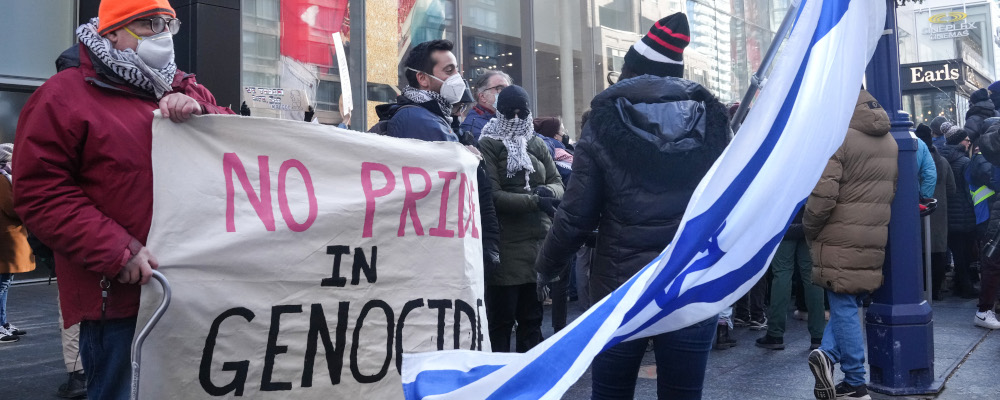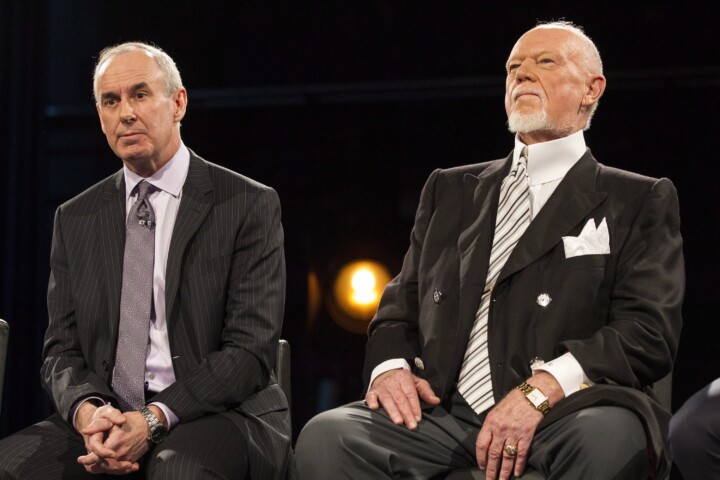The Jewish holiday of Purim over the weekend sparked the usual array of political tweets featuring some odd interpretations of the meaning of the holiday and expressing varying degrees of support for the Jewish community. But coming off one of the worst weeks in memory—cancelled Jewish events due to security concerns, antisemitism in the mainstream media, deeply troubling comments on the floor of the House of Commons, and the marginalization of some Jewish MPs in government —the time for generic statements of support does not cut it.
The Globe and Mail has noted the “dangerous slide into antisemitism” and called for a House motion unequivocally condemning antisemitism. This post provides further context to that piece, arguing that such a motion is necessary but insufficient since it is leadership and real action from our politicians, university presidents, and community groups that is desperately needed.
The relentless antisemitism in Canada has left many in the community numb, creating a new normal that has obvious echoes of prior generations who faced pogroms, ethnic cleansing, and the Holocaust. Some point to events in Israel and Gaza to explain the antisemitic surge, yet Canadian Jews are no more responsible for the actions of the Israeli government than Canadian Muslims are to blame for last week’s ISIS terrorist attack in Russia.

Since October 7th, there have been terrorism charges in Ottawa involving plans to target the Jewish community, firebombs, shots, and vandalism targeted at Jewish schools and community centres in Montreal, Toronto, and Fredericton, vandalism, and threats at Jewish-owned businesses, as well as protests outside synagogues, Jewish institutions, and Jewish neighbourhoods. In addition, there is the antisemitism in the cultural world including the cancellation of a Jewish film festival in Hamilton (since relocated) and plays with Jewish or Israeli themes cancelled in British Columbia. Meanwhile, Jewish politicians have been targeted with threats or pressured out of office altogether.
The situation on university campuses merits special mention. The congressional testimony in the U.S. from three presidents seemingly unable to articulate a clear position on the implications of calling for the genocide of Jews captured headlines last year, but here in Canada being openly Jewish on campus carries real risk, including efforts to evict Jewish organizations from campus. Universities have policies in place designed to promote safety and inclusivity, but Jews know that outward expressions of their religion runs the risk of verbal or physical abuse and that death threats or antisemitic graffiti can be found on campus walls. Indeed, buildings carrying Jewish names, reflecting a commitment from the community to give back to these institutions are now specifically targeted by protesters. Universities react quickly to incidents targeting other groups, but rarely to Jewish students or faculty. In contrast to other external signals of inclusivity, there are no signs on faculty doors that say “kippas welcome here” and EDI officers often don’t think of the wellbeing of Jewish students as part of their mandate. Further, the situation is little better in secondary schools, where school boards are often missing in action as Jewish teachers hide their religion and live in fear of being targeted.
This is simply the reality of being Jewish in Canada in 2024, where antisemitic incidents represent the majority of reported hate crimes in our largest cities. Going to synagogues or Jewish schools often involves a police presence and speaking about your concerns in public requires hushed tones. In work environment after work environment—doctors, public servants, labour unions, and more—one hears about a steady stream of antisemitism that has led to resignations and lawsuits. Some now choose to hide their religion in the hope of being ignored or remain silent for fear of the terrifying antisemitic backlash that speaking out invariably sparks.
For a country that prides itself on rights of equality, freedom of expression, and freedom of religion, these rights and freedoms do not apply in equal measure right now for the Canadian Jewish community.
The government has made inclusivity its brand and one would have hoped that it would be vocally supportive of the Jewish community in words and deeds. Yet the silence from the majority of MPs and misleading comments from government ministers in 2022 when it was revealed that Canadian Heritage had funded an antisemite as part of its anti-hate program was a warning sign of the cowardice that exists when it comes to antisemitism.

That cowardice was repeated last week when Pascale St-Onge, the new Canadian Heritage minister, was unwilling to forcefully call out an antisemitic cartoon published in a major French newspaper or when MPs avoid referencing antisemitism by relying on more generic anti-hate messages. Domestic political calculations appear to trump principle and after the murder of six million Jews in the Holocaust and a Canadian immigration policy that was once premised on “none is too many”, the Jewish community is seemingly too small today to matter to governments.
This is not an easy post to write. But after the Globe and Mail last week called for a House motion unequivocally condemning antisemitism, I felt it necessary to endorse the proposal and supplement it by arguing that supportive words alone are insufficient. The motion must be accompanied by action. That could start with ensuring that public dollars for education and cultural institutions do not go to institutions that maintain a hostile environment by failing to address antisemitism, narrowing Bill C-63 to online harms rules that hold platforms accountable for failing to abide by their own policies, providing financial support for the security of Jewish schools and community institutions, promoting antisemitism education within the public service, and implementing Holocaust education in our schools. There needs to be similar motions and commitments to act from provincial and local governments since many of the issues fall within their jurisdiction.
The story of Purim isn’t about the “triumph of inclusion, love, and resilience” as one MP suggested. It is about the personal and political courage summoned by leaders such as Queen Esther to speak out and act against evil. That is the lesson for modern times as we need more of that courage today if we are to confront antisemitism in Canada.
This column originally appeared at michaelgeist.ca.
Recommended for You

Sean Speer: Maybe Ron MacLean is the one who needs to go

Falice Chin: A tale of two (Poilievre) ridings

Evan Menzies: Calgary at 150: Why is it so hard to celebrate our history?

‘We’re winning the battle of ideas’: Conservative MP Aaron Gunn on young men moving right, the fall of ‘wokeness,’ and the unraveling of Canadian identity



